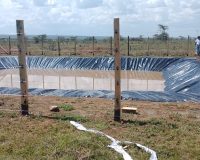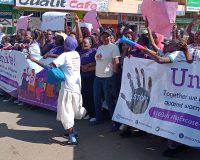A Call to Action During the International Day Against Drug Abuse and Illicit Trafficking (IDADA) 2025
On June 26, the world will once again observe the International Day Against Drug Abuse and Illicit Trafficking (IDADA). This year’s theme: “The evidence is clear: invest in prevention. Break the cycle. #StopOrganizedCrime”
This is both A Declaration and a Call to Action
“I’ve been a Deputy Principal for years, and I truly believed that enforcing strict discipline was the key to keeping students on track. I honestly thought I was shaping them in the right direction. But this training has opened my eyes in ways I never expected. I feel a deep urge to apply what I’ve learned not just at school, but at home too. I need to change.”
Deputy Principle
These words are a powerful reminder that prevention begins with self-awareness, shifts in practice, and a renewed commitment to doing better for our students, families, and communities the very kind of transformation this year’s theme calls for from both individuals and institutions.
At the trainings, Deputy Principals made practical commitments to break the cycle of substance use in schools by:
- Eliminating harmful, reactionary discipline
- Listening without judgment
- Collaborating with others in the school community to support affected students
Encouragingly, the United Nations Office on Drugs and Crime (UNODC) is also urging nations to place prevention at the heart of their drug strategies. The 2025 IDADA campaign emphasizes:
- Compassion over criminalization
- Universal access to treatment
- Alternatives to punitive measures
- Investment in prevention
- Ending stigma
The IDADA 2025 commemoration offers us a chance to celebrate this progress, reflect on the journey, and recommit this time with our students at the center to breaking the cycle of drug abuse and organized crime.
How are you breaking the cycle of substance use?
When we invest in schools, parent education, youth leadership programs, and teacher training as we have in Nyandarua County we are not just helping individuals but disrupting systems, reducing demand, and breaking the cycle before it begins.
Whether you are a policymaker, teacher, parent, or student, you have a role to play.






